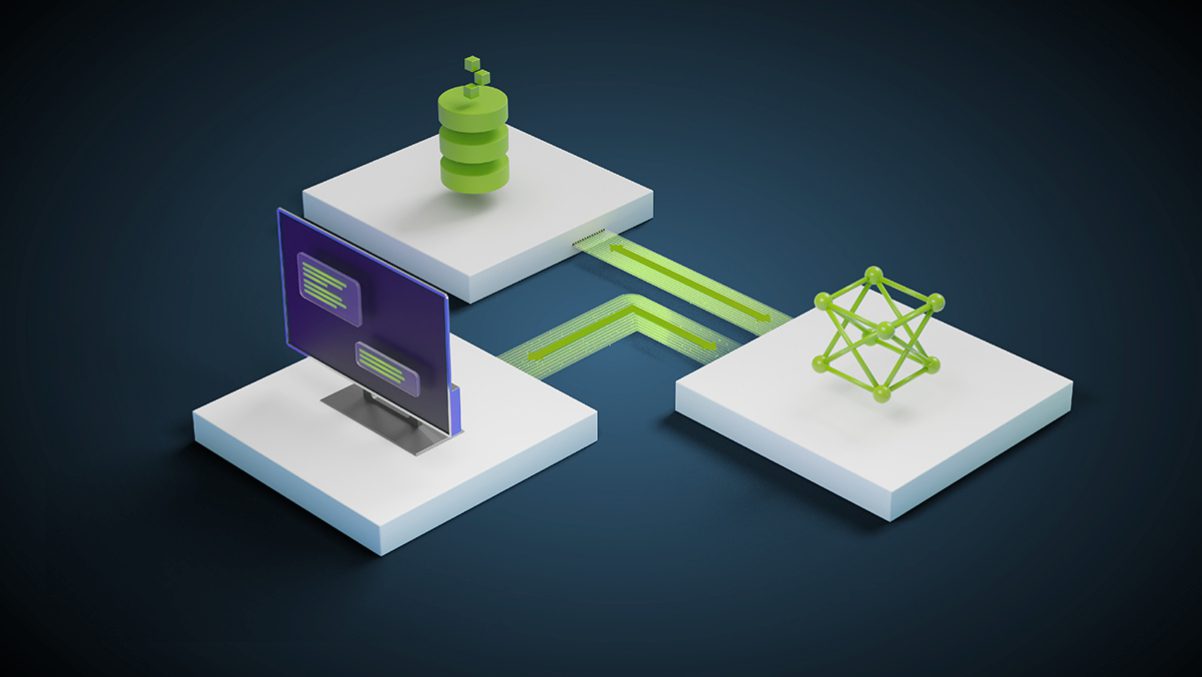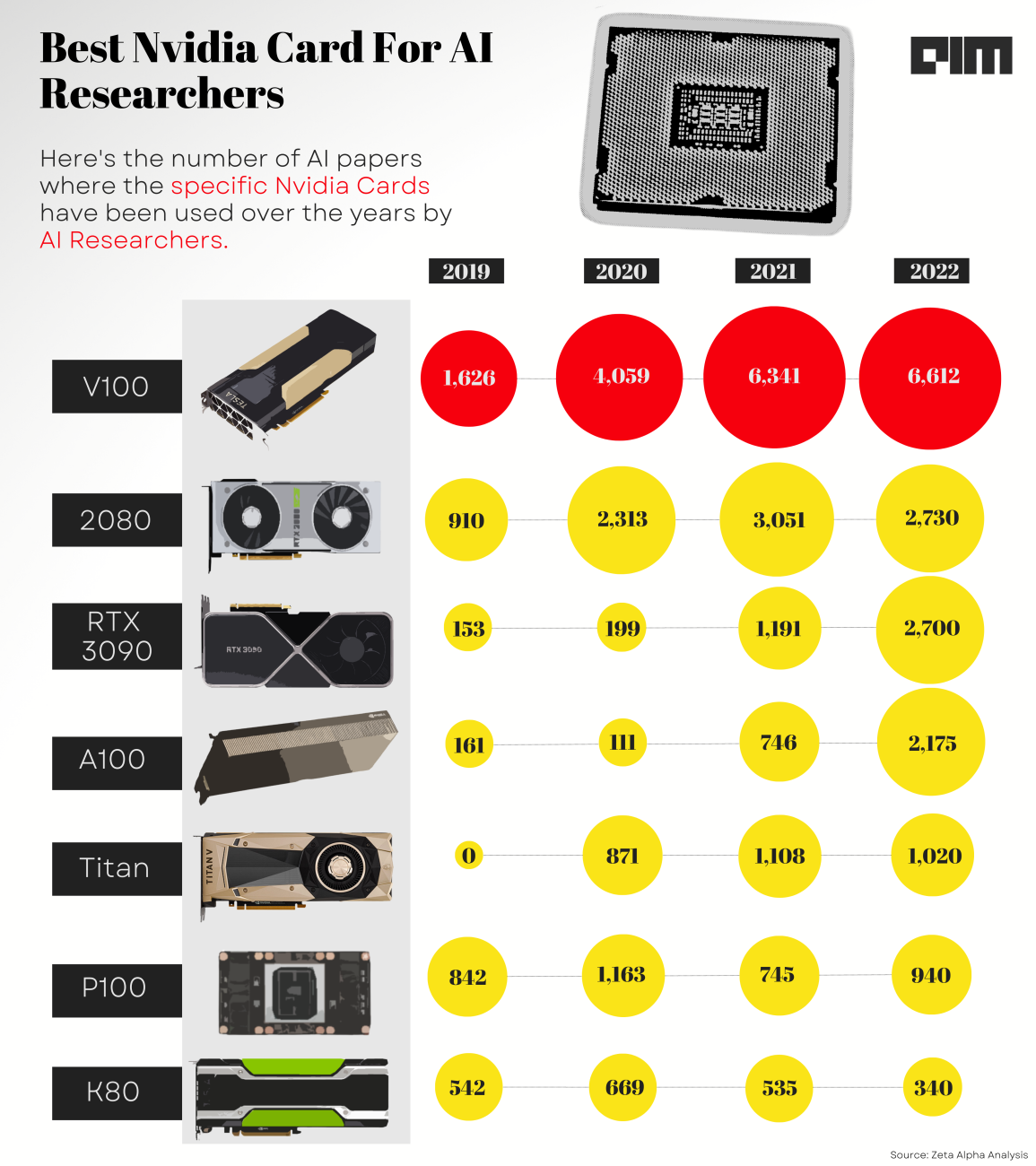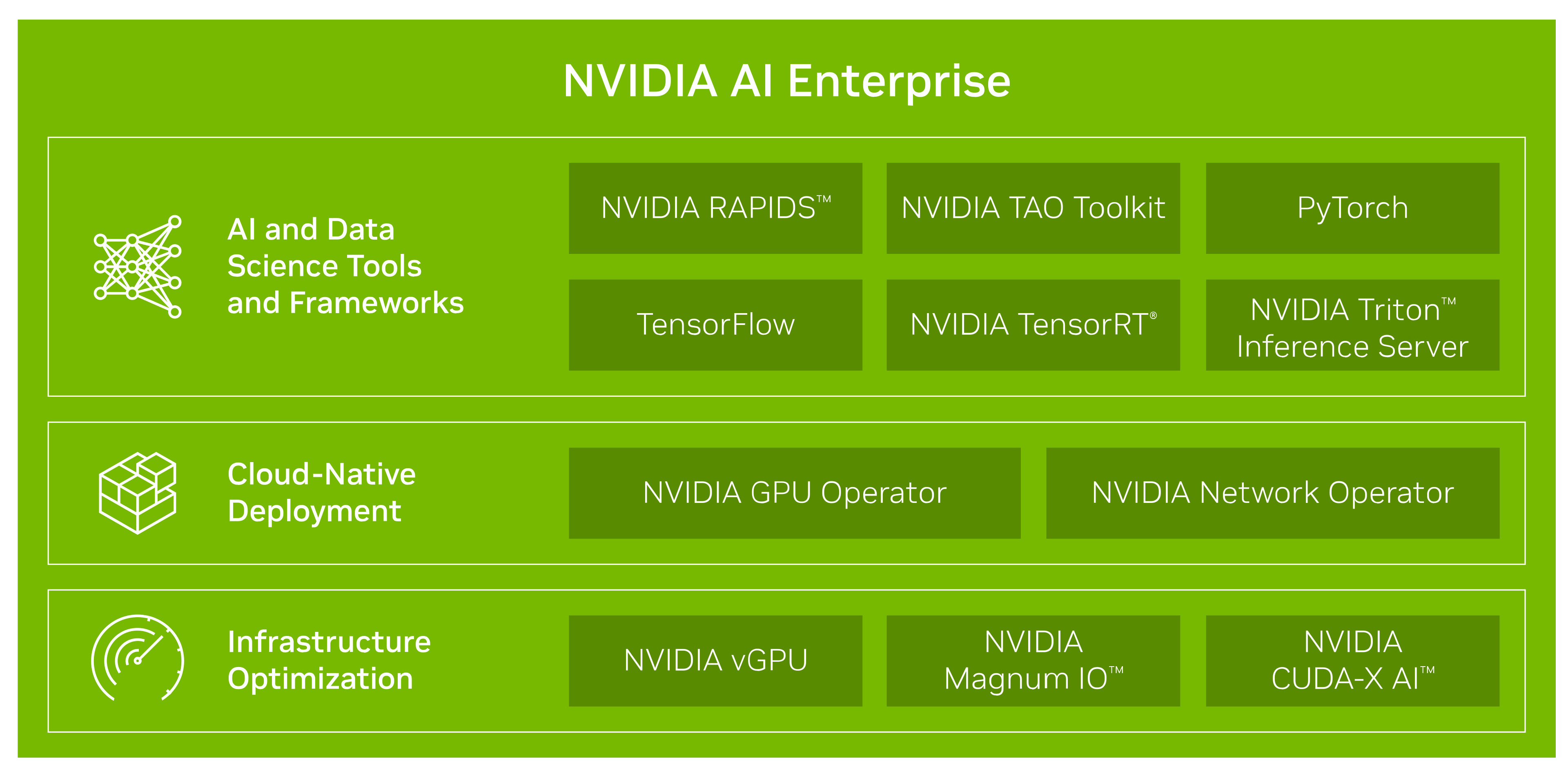
Introduction
It’s our pleasure to delve into the intriguing topic related to Nvidia: The AI and Gaming Platform That’s Making a Positive Impact. Let’s weave interesting information and offer fresh perspectives to the readers.
Table of Content
- 1 Introduction
- 2 The Rise of Nvidia: From Graphics Cards to AI Powerhouse
- 2.1 Nvidia’s GPU Advantage: The Foundation of Success
- 2.1.1 The CUDA Architecture: Enabling Parallel Processing
- 2.2 Nvidia’s Impact on AI: Transforming Industries
- 2.2.2 Revolutionizing Healthcare with AI-Powered Diagnostics
- 2.2.3 Accelerating Scientific Discovery with High-Performance Computing
- 2.2.4 Powering the Autonomous Vehicle Revolution
- 3 The Gaming Legacy: A Foundation for Innovation
- 3.3 The GeForce Experience: Enhancing the Gaming Ecosystem
- 3.3.5 Ray Tracing and DLSS: Pushing the Boundaries of Visual Fidelity
- 4 Challenges and Ethical Considerations
- 4.4 Addressing Algorithmic Bias in AI Systems
- 4.4.6 Data Privacy and Security in the Age of AI
- 5 The Future of Nvidia: Continued Innovation and Societal Impact
- 5.5 Nvidia’s Metaverse Ambitions: Shaping the Future of Virtual Worlds
- 5.5.7 Expanding into New Markets: Diversification and Growth
- 6 Conclusion
- 7 FAQs
- 8 Closure
Nvidia: The AI and Gaming Platform That’s Making a Positive Impact
The Rise of Nvidia: From Graphics Cards to AI Powerhouse
Remember those bulky, whirring graphics cards that fueled the first wave of immersive gaming? That’s where Nvidia started, but their journey is far from over. Today, Nvidia isn’t just about gaming; they’re at the forefront of the artificial intelligence revolution, powering everything from self-driving cars to medical breakthroughs. It’s a remarkable transformation, a testament to their ability to adapt, innovate, and anticipate the future. Think about it: a company initially known for enhancing our virtual worlds is now fundamentally reshaping our reality. This wasn’t a simple shift; it involved significant research and development, shrewd acquisitions, and a clear vision of the future of computing. Their success story is a fascinating blend of technological prowess and astute business strategy, a narrative that deserves a closer look. We’ll delve into the specifics of their impact, examining both the positive contributions and the potential challenges that lie ahead. But first, let’s establish a baseline understanding of their core technologies and their market dominance.
Nvidia’s GPU Advantage: The Foundation of Success
Nvidia’s success story is inextricably linked to its Graphics Processing Units (GPUs). While initially designed for rendering graphics, GPUs proved surprisingly adept at parallel processing – the ability to handle many tasks simultaneously. This capability turned out to be crucial for the burgeoning field of artificial intelligence, where massive datasets need to be processed quickly. Think of it like this: a CPU (Central Processing Unit) is like a single chef preparing a meal meticulously, while a GPU is like a brigade of chefs working in parallel, each specializing in a particular aspect of the dish. This parallel processing power is what makes Nvidia’s GPUs so effective in training and deploying AI models. The sheer computational power they offer is unmatched, allowing for faster training times and more accurate results. This fundamental advantage catapulted Nvidia into a leading position in the AI hardware market, a position they continue to solidify.
The CUDA Architecture: Enabling Parallel Processing
The CUDA (Compute Unified Device Architecture) platform is the secret sauce behind Nvidia’s GPU dominance. CUDA allows developers to write programs that leverage the parallel processing power of Nvidia GPUs, unlocking their full potential for AI and other computationally intensive tasks. This wasn’t simply a hardware advancement; it was a strategic move to create a developer ecosystem, encouraging programmers to build applications specifically for Nvidia hardware. This ecosystem has become a powerful network effect, attracting more developers, leading to more applications, and further cementing Nvidia’s position in the market. It’s a virtuous cycle of innovation and adoption, a testament to Nvidia’s forward-thinking approach to software and hardware development.
Nvidia’s Impact on AI: Transforming Industries
Nvidia’s GPUs are not just powering video games; they are the engines driving the AI revolution. From self-driving cars to medical imaging, Nvidia’s technology is making a significant impact across various industries. Let’s explore some key areas where Nvidia’s contribution is particularly noteworthy. The sheer scale of Nvidia’s impact is staggering, touching upon aspects of our daily lives that we may not even realize. It’s a subtle yet profound influence, shaping the technological landscape in ways that are both exciting and potentially transformative.
Revolutionizing Healthcare with AI-Powered Diagnostics
Imagine a world where diseases are diagnosed earlier and more accurately, leading to better treatment outcomes and improved patient care. This is becoming a reality thanks to AI-powered medical imaging, which relies heavily on Nvidia’s GPUs. Nvidia’s technology enables faster and more precise analysis of medical images, such as X-rays, CT scans, and MRIs. This allows doctors to detect anomalies that might be missed by the human eye, leading to earlier diagnoses and more effective treatment strategies. This isn’t just about technological advancement; it’s about saving lives and improving the quality of life for countless individuals. The impact is profound, extending beyond individual patients to reshape healthcare systems and improve overall public health.
Accelerating Scientific Discovery with High-Performance Computing
Scientific research often involves processing vast amounts of data, requiring significant computational power. Nvidia’s GPUs are accelerating scientific discovery in various fields, from genomics and drug discovery to climate modeling and astrophysics. The ability to process complex datasets at an unprecedented speed enables researchers to make breakthroughs that were previously impossible. This isn’t simply about faster calculations; it’s about pushing the boundaries of human knowledge and understanding. The implications are far-reaching, with the potential to address some of humanity’s most pressing challenges.
Powering the Autonomous Vehicle Revolution
Self-driving cars are no longer a futuristic fantasy; they’re becoming a reality, and Nvidia is playing a crucial role. Nvidia’s GPUs are used to process sensor data from autonomous vehicles, enabling them to navigate complex environments and make real-time decisions. This involves processing vast amounts of information from cameras, lidar, and radar sensors, requiring immense computational power. Nvidia’s technology is not just about enabling self-driving cars; it’s about creating a safer and more efficient transportation system. The implications extend beyond individual convenience, impacting urban planning, traffic management, and even accident reduction.
The Gaming Legacy: A Foundation for Innovation

Before conquering the AI world, Nvidia built its reputation in the gaming industry. Their high-performance graphics cards revolutionized gaming experiences, creating more immersive and realistic virtual worlds. This success wasn’t accidental; it was the result of continuous innovation, a commitment to pushing the boundaries of graphics technology, and a deep understanding of the gaming community’s needs and desires. The gaming industry provided a crucial testing ground for Nvidia’s technology, pushing the limits of what was possible and paving the way for their future dominance in the AI arena. The lessons learned in gaming—optimization, performance, and responsiveness—proved invaluable in their transition to AI.
The GeForce Experience: Enhancing the Gaming Ecosystem
Nvidia’s GeForce experience isn’t just about hardware; it’s about creating a comprehensive ecosystem that enhances the entire gaming experience. This includes features like driver updates, game optimization tools, and streaming capabilities. This holistic approach to gaming has fostered a loyal community of users, further cementing Nvidia’s position as a leader in the industry. It’s a testament to their understanding that success isn’t just about selling hardware; it’s about creating a positive and engaging experience for their customers. This focus on the user experience has translated into their approach to AI, creating tools and platforms that are accessible and user-friendly.
Ray Tracing and DLSS: Pushing the Boundaries of Visual Fidelity
Nvidia’s commitment to innovation is evident in technologies like ray tracing and DLSS (Deep Learning Super Sampling). Ray tracing creates more realistic lighting and reflections in games, while DLSS uses AI to improve image quality without sacrificing performance. These technologies demonstrate Nvidia’s dedication to pushing the boundaries of visual fidelity, providing gamers with unparalleled visual experiences. These advancements are not just about enhancing the gaming experience; they are showcasing the potential of AI to improve various aspects of our digital lives. The same AI techniques used to enhance gaming visuals can be applied to other fields, further demonstrating the versatility and power of Nvidia’s technology.
Challenges and Ethical Considerations
Despite the positive impact, Nvidia’s technology presents some challenges and ethical considerations. The increasing reliance on AI raises concerns about job displacement, algorithmic bias, and data privacy. These are not just technical issues; they are societal challenges that require careful consideration and proactive solutions. Nvidia, as a leader in the field, has a responsibility to address these concerns and contribute to the responsible development and deployment of AI. This requires a multi-faceted approach, involving collaboration with researchers, policymakers, and the wider community.
Addressing Algorithmic Bias in AI Systems
AI systems are trained on data, and if that data reflects existing biases, the AI system will perpetuate those biases. This can lead to unfair or discriminatory outcomes. Nvidia recognizes this challenge and is actively working on solutions to mitigate algorithmic bias. This involves developing techniques to identify and correct biases in training data, as well as creating more transparent and explainable AI systems. This isn’t simply a technical fix; it’s a societal imperative, requiring a commitment to fairness and equity in the development and deployment of AI technologies. The ethical considerations are paramount, requiring a multidisciplinary approach involving computer scientists, social scientists, and ethicists.
Data Privacy and Security in the Age of AI
The increasing use of AI involves the collection and processing of vast amounts of data. This raises concerns about data privacy and security. Nvidia is committed to protecting user data and is implementing measures to ensure the security and privacy of the data used in its AI systems. This involves adhering to strict data protection regulations and employing robust security protocols. This isn’t just about compliance; it’s about building trust and ensuring responsible data handling practices. The ethical implications are significant, requiring a commitment to transparency and accountability in data management practices.
The Future of Nvidia: Continued Innovation and Societal Impact

Nvidia’s future looks bright, driven by continued innovation in AI and gaming. Their commitment to research and development, coupled with their strong market position, positions them well to lead the next wave of technological advancements. However, their success will depend on their ability to address the challenges and ethical considerations associated with AI. This requires a long-term vision, a commitment to responsible innovation, and a collaborative approach involving various stakeholders. The future of Nvidia, and indeed the future of AI, will be shaped by how effectively these challenges are addressed.
Nvidia’s Metaverse Ambitions: Shaping the Future of Virtual Worlds
Nvidia is actively involved in the development of the metaverse, a persistent, shared virtual world. Their technology is crucial for creating realistic and immersive virtual experiences, enabling users to interact with each other and with virtual objects in a seamless and intuitive way. This isn’t just about gaming; it has implications for various industries, including education, healthcare, and entertainment. The metaverse presents both opportunities and challenges, requiring careful consideration of ethical and societal implications. Nvidia’s role in shaping the metaverse will be significant, requiring a responsible and forward-thinking approach.
Expanding into New Markets: Diversification and Growth
Nvidia’s success isn’t limited to AI and gaming; they are expanding into new markets, including robotics, cloud computing, and high-performance computing. This diversification will ensure their long-term growth and resilience. The ability to adapt and innovate will be crucial for navigating the ever-changing technological landscape. Nvidia’s success will depend on their ability to anticipate future trends and adapt their strategies accordingly. Their future growth will be a testament to their ability to innovate and adapt to the ever-evolving technological landscape.
Conclusion
Nvidia’s journey from a graphics card manufacturer to a leading AI powerhouse is a remarkable success story. Their technology is transforming various industries, from healthcare to autonomous vehicles, creating a positive impact on society. However, the ethical considerations surrounding AI require careful attention. Nvidia’s future success hinges on its ability to navigate these challenges responsibly, fostering innovation while prioritizing ethical considerations. Their commitment to research and development, coupled with their focus on user experience, positions them well for continued success in the years to come.
Ultimately, Nvidia’s story is a testament to the power of innovation and the importance of adapting to a rapidly evolving technological landscape. Their contributions to both the gaming and AI worlds are undeniable, shaping the way we interact with technology and the world around us. The future is bright for Nvidia, but their continued success will depend on their ability to balance technological advancement with ethical considerations, ensuring that their innovations benefit society as a whole.
FAQs
- What is Nvidia’s main competitive advantage? Nvidia’s primary competitive advantage lies in its highly advanced GPUs, particularly their parallel processing capabilities, and the CUDA architecture which enables efficient software development for these GPUs.
- How does Nvidia’s technology impact healthcare? Nvidia’s GPUs accelerate the processing of medical images, enabling faster and more accurate diagnoses through AI-powered medical imaging systems.
- What are the ethical concerns related to Nvidia’s AI technology? Ethical concerns include algorithmic bias, data privacy, and the potential for job displacement due to automation.
- What is Nvidia’s role in the metaverse? Nvidia provides the crucial computational power needed to create realistic and immersive virtual worlds within the metaverse.
- What is Nvidia’s future outlook? Nvidia’s future is promising, driven by continued innovation in AI and expansion into new markets, but success depends on addressing ethical challenges and responsible AI development.
Closure
In conclusion, we hope this article has provided valuable insights into Nvidia: The AI and Gaming Platform That’s Making a Positive Impact. We appreciate your readership and engagement. See you in our next article!
